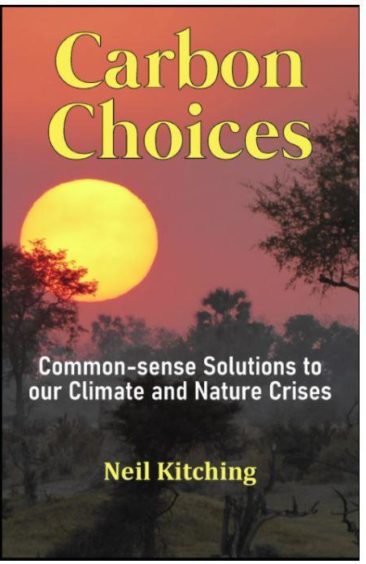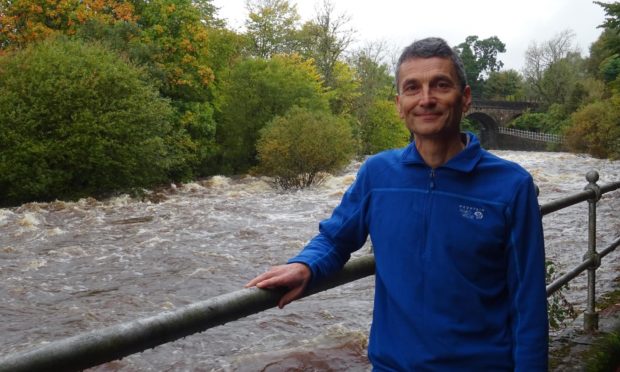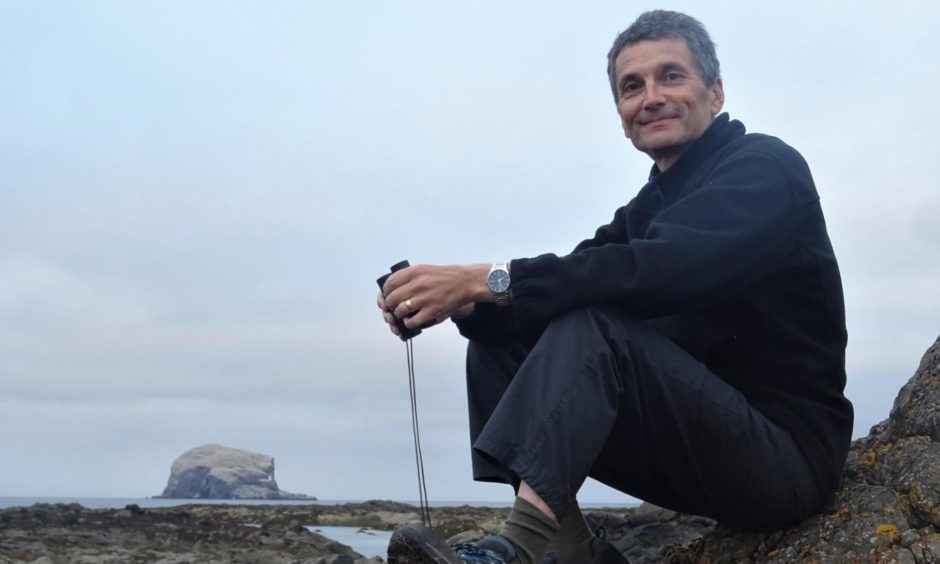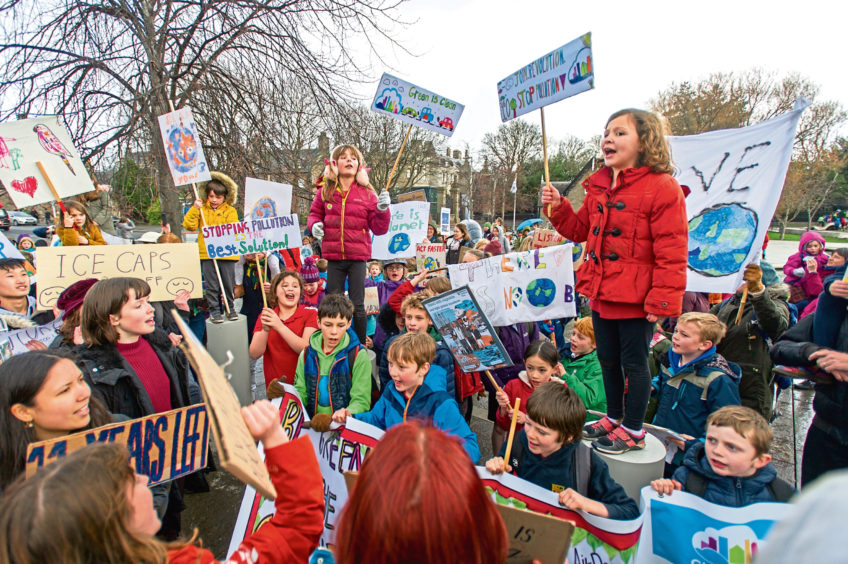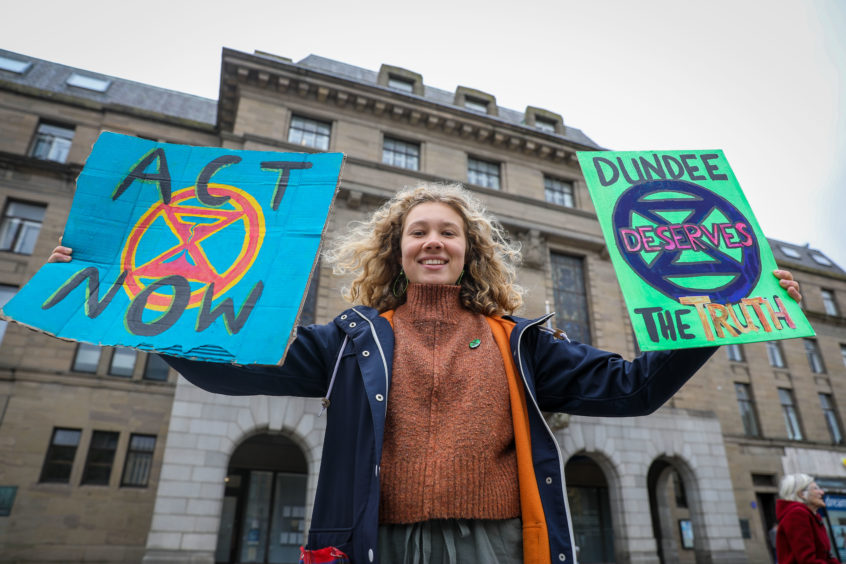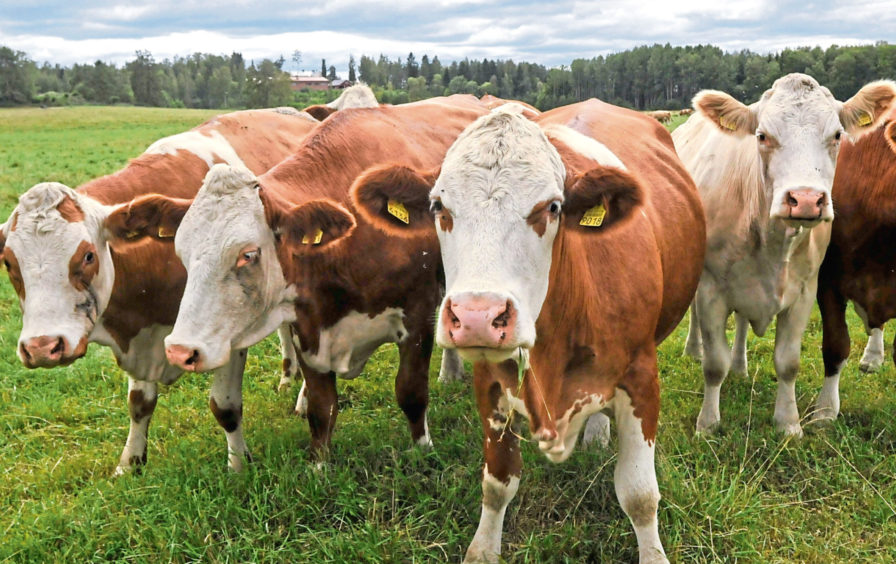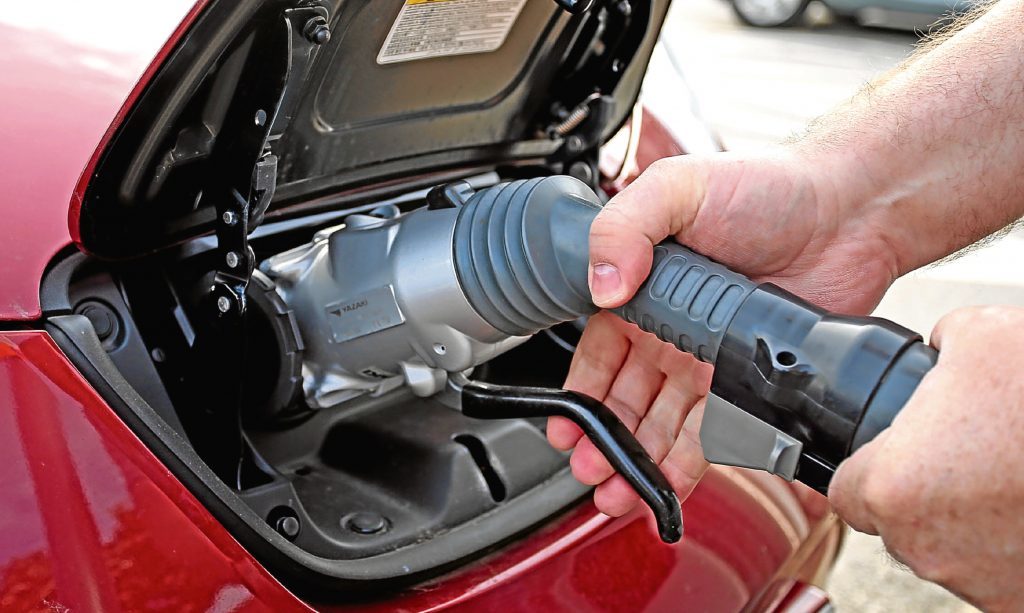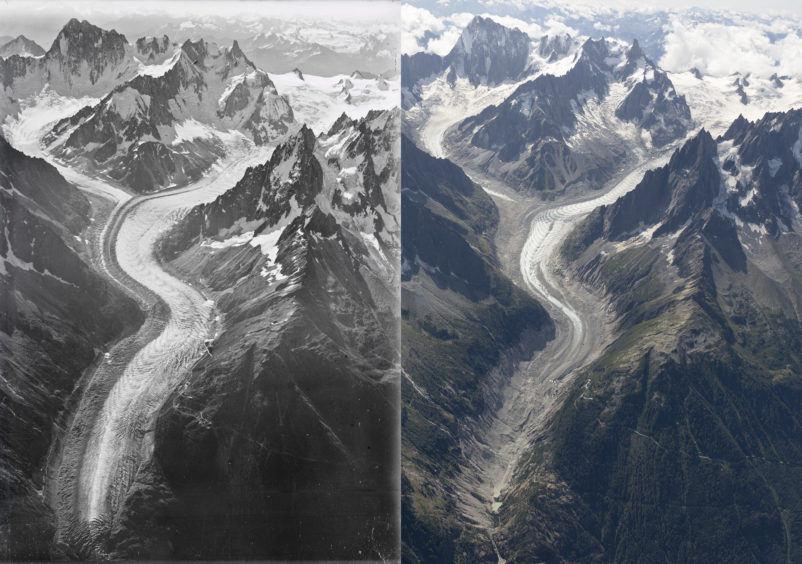Michael Alexander speaks to Perth-raised accountant turned environmentalist Neil Kitching about the environmental choices facing everyone on the planet.
In a parallel universe, up to 180 world leaders and 30,000 delegates would be descending on Glasgow’s Scottish Events Campus (SEC) this week for the annual international United Nations summit on climate change.
Before the Covid-19 pandemic hit, the 26th Conference of the Parties, known as COP26, was designed to produce an international response to the climate emergency.
The Glasgow summit is now scheduled to take place a year later, in November 2021.
However, the unprecedented events of the global pandemic have not stopped a former Perth man from releasing a book he originally planned to coincide with the 2020 summit given that the climate emergency is fully upon us and we arguably have no time to waste.
Carbon Choices, by former Perth Academy pupil Neil Kitching, 53, focuses on the “common-sense solutions” to our climate and nature crises.
It describes what climate change is, the “10 building blocks that are needed to resolve the problem” and the solutions related to our day-to-day lives – our homes, travel, diets and leisure activities.
In his day job, Neil, a former accountant who made a career change into environmentalism, is an energy specialist working for a government agency to support water and water technology companies.
But in his spare time, he felt compelled to write this book to see if he could, in his own small way, “help people to make the change that is necessary to prevent humans from causing climate change and destroying wildlife”.
“Coming from Scotland, host of the global 2021 climate conference, Carbon Choices tells how one group of sociable animals came to emit 40 billion tonnes (40,000,000,000) of an invisible gas each year, changing the chemistry of the atmosphere and the oceans, and steadily destroying the environment and life support systems that we depend on,” said Neil, a married father-of-three, who lives in Dunblane.
“We have unwittingly driven the world into a climate and wildlife crisis by the endless extraction of raw materials and our excessive consumption – primarily by wealthier people and countries.
“Carbon Choices considers the psychology that drives us to buy more ‘stuff’ and whether this makes us happier.
“In plain language, it describes 10 building blocks that provide us with a foundation to build sensible climate change solutions; and five common-sense principles to guide us in the decisions that we make.
“By applying these principles to our daily lives – our diets, homes, travel, shopping and leisure activities – we can regenerate nature and improve our society, make us healthier, happier and lead more fulfilled lives.
“The book concludes with a green action plan for government, business and individuals to make better Carbon Choices.”
Born and raised in Perth, Neil feels fortunate that he was brought up in a family that enjoyed visiting the countryside and observing nature.
He climbed his first Munro (Ben Vorlich) when he was five and enjoyed cycling and exploring the local countryside.
When he left Perth Academy, his love of the outdoors led him to study geography at Edinburgh University.
Graduating at a time of global recession in the early 1990s and discovering there were few ‘geography jobs’ available, he trained to be an accountant with KPMG in London and, after a year in the capital and five years in Sheffield, ended up working with Central Regional Council in Stirling.
However, while he didn’t hate accountancy or the security it brought, he realised that after almost 20 years it “didn’t do anything” for him and he wanted to tap back into his earlier ambitions to work in environmentalism.
Overcoming the very real challenges of making a mid-life career change when he had a family, it was while earning a reasonable salary as an internal audit manager that he managed to secure a job as sustainable development officer with a government agency.
While his day job as an energy specialist was much more satisfying, and as awareness of the climate emergency started gathering momentum, he started thinking about writing a book in his spare time that would help people make choices about making a real difference.
Originally he thought about writing the book when he retired.
But when he realised that realistically this might not be for another 10 years or so, he felt this would be a “bit late” given we have a deepening climate emergency now – and took advantage of the announcement that the United Nations climate change conference would be held in Glasgow in 2020 in a bid to maximise publicity.
Stressing that the views in the book are his own and independent of his employer, he hopes it will help businesses and consumers to influence governments to set the right regulatory framework; to encourage businesses to offer consumers better choices; and to empower individuals to make better choices for our climate and for wildlife.
“What frustrates me is that people don’t really know the facts about climate change, and a lot of that is because they never learned it at school, they never learned it at university, they hadn’t learned it at work,” he said.
“There’s whole generations who don’t know the basic facts.
“Everybody knows a bit, but when you dig into it you realise they don’t know the basic stuff that I think everybody should know about since it’s one of in not the big issue of our times.”
For example, Neil said most people know about carbon dioxide and its impact on climate change.
They know about the impact of electricity and gas at home and the impact of travel.
However, through his research, it’s become clear far less people know about the impact of diet – that food and agriculture accounts for at least 25% of all climate change.
“The problem is down to what we consume – it’s what we buy,” he said.
“We buy stuff in from China and other countries that are more polluting in the way they produce goods.
“It’s a much wider picture that people aren’t aware of.
“They know about carbon dioxide but they don’t know about methane which comes from cattle burping and even growing rice in paddy fields and from oil and gas flaring in the North Sea. People just aren’t aware of that.”
Asked whether he practices what he preaches when it comes to leading a ‘green’ lifestyle, Neil admits he’s “no angel” and he’s never claimed to be.
He put solar panels on his house roof over 10 years ago, he now buys oat milk instead of dairy milk, he tries to only buy what he needs to minimise waste and buys second hand where possible.
But he admits that while he did buy the “most fuel efficient car” a few years ago, he didn’t buy an electric one because it was too expensive.
He’s also not a vegan – despite the fact he thinks people should be giving up meat and dairy products to reduce carbon emissions.
“I just think it’s very difficult because society isn’t quite there yet,” he added.
“That’s one of the messages of my book that individuals can change to some extent but we need to get our systems right. We need to get our taxes right, our subsidies right, our investments to support people to change.
“It’s difficult to go out and buy an electric car just now when it’s maybe £10,000 more than a petrol car.
“There are some things that will happen because technology has changed so much.
“We have changed from dependence on coal electricity to wind power and that’s just happened through a few mechanisms the government has introduced. The consumer hasn’t noticed any difference.
“I think the shift to electric cars will happen and will happen much sooner than anyone thinks because electric cars offer better performance, better quality, they’ll last longer, need fewer repairs. That is coming, You can see it coming.
“But I guess beyond that there are things that are harder to change.
“I go back to diets and farming – that requires a social and cultural change. I don’t see a great deal of that happening.
“I know there are a lot more people going vegan but it’s not exactly mainstream and I think it needs a whole education thing not just for school children but for adults and retired people as well.”
Neil said the key for real systemic change is for government to set the right regulations. Business will then respond and consumers will have better choices to make.
“That’s why the book is called Carbon Choices, because there are choices to be made.”
He hopes the year delay for COP26 will be a “chance for the USA to sort out its sense of direction and policy” while he was encouraged by China’s recent announcement that it aims to go “net zero” by 2060.
“Things are moving at a political scale,” he added.
“Covid is obviously complicated but it’s forced change upon us that nobody could have predicted.
“It probably demonstrates that we can change if we want to. We are just choosing not to.
“What I hope from this summit is that they’ll come up with a stronger agreement – very simple!
“The Paris Agreement is fine but it’s far too weak to deliver the change that’s needed.”
· Carbon Choices by Neil Kitching is now on sale on Amazon, Kindle and Meldrum Newsagent in Dunblane.
